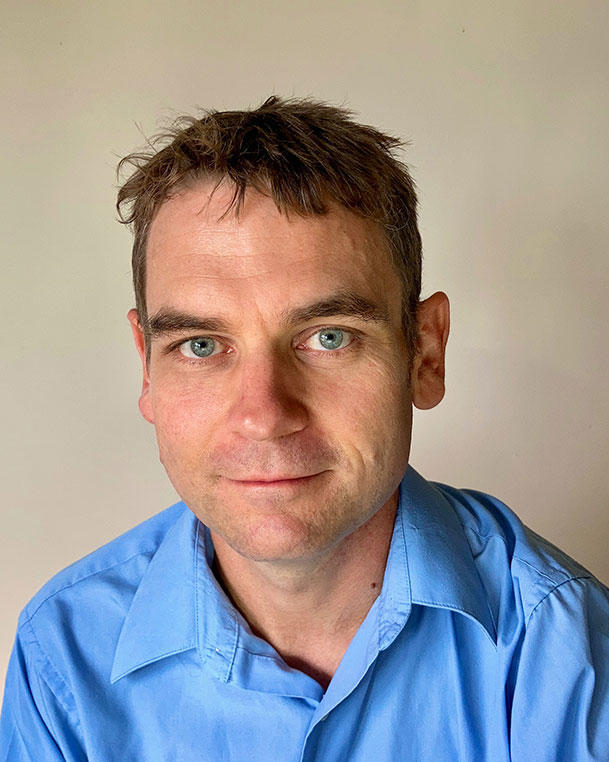Alexander Keil Appointed Earl Stadtman Investigator
, by Jennifer K. Loukissas, M.P.P.
Alexander Keil, Ph.D., M.S.P.H., was appointed Earl Stadtman tenure-track investigator in the Occupational and Environmental Epidemiology Branch in May 2022. Dr. Keil studies occupational and environmental exposures that consider exposure across the life course as well as the complex interactions between exposures and health. Prior to joining DCEG, Dr. Keil earned a reputation as a stellar methodologist, particularly known for his application of causal inference principles to develop methods for understanding effects of exposure mixtures on health. His research is highly collaborative, and he has numerous collaborations with researchers within OEEB and around the country.
Occupational epidemiology studies have shown, especially in manufacturing and other manual trades, workers who can tolerate difficult work environments or exposure to chemical irritants can remain in those jobs longer than workers who are more sensitive to such exposures. The reasons for tolerance/sensitivity may relate to health status or other factors that have yet to be described; this phenomenon is often referred to as the healthy worker paradox or survivor bias. The ability to stay in a higher-exposure job for longer because an individual is healthy results in that person having a greater accumulation of exposure but when analyzed, the data suggest lower risk of diseases, including cancer, compared to workers with the same job who had lower exposure due to less time in that occupation. These data can severely underestimate the harm caused by workplace exposures. Dr. Keil applies causal inference modeling to interrogate longitudinal exposure data from occupational cohorts and separate worker health, time in job, and other factors that may dilute or exacerbate the strength of a relationship or create spuriously protective associations between cumulative worksite exposures and health outcomes.
Exposures never occur in isolation. For example, particulate matter in the air comingles with ozone and other contaminants and possible carcinogens that are the product of the modern environment. Dr. Keil investigates the coexistence of many exposures that may be relevant to cancer risk, and develops approaches to describe their space-time distributions, accounting for their high dimensional nature that complicates investigations into the key features of a mixture.
Dr. Keil uses data from existing cohorts including the Agricultural Health Study, and Well Water contamination measures in North Carolina (WELLWISE study), to explore the health effects of exposure mixtures in collaboration with other DCEG investigators. Exposures in the general population have similarly complex patterns, and the risk estimates derived for workplace settings can be extrapolated to everyday exposures. In addition, Dr. Keil is working to quantify how exposure disparities can lead to health disparities. These exposures are often collocated with housing of individuals with low income or who come from historically disadvantaged racial and ethnic groups.
Dr. Keil earned an M.S.P.H. and Ph.D. in epidemiology from the University of North Carolina (UNC) at Chapel Hill. He also completed a postdoctoral fellowship and served as a research assistant professor at UNC.
